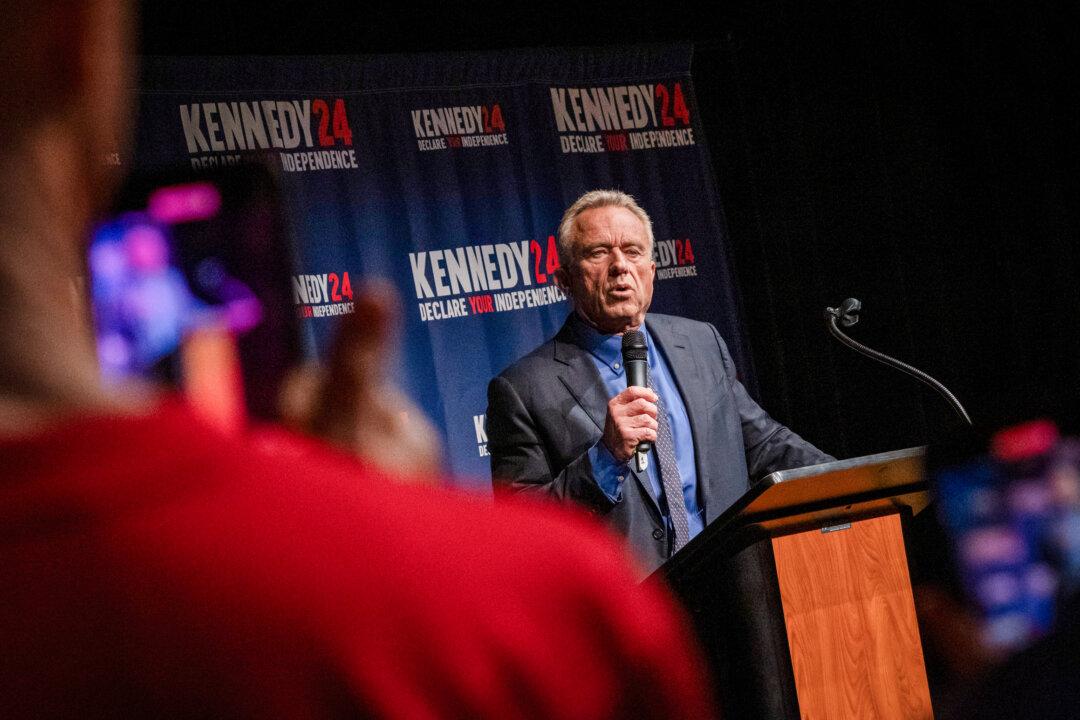Robert F. Kennedy Jr., the 2024 independent presidential candidate, is continuing the daunting task of attempting to gain ballot access in all 50 states and the District of Columbia.
Mr. Kennedy will appear at voter rallies in Raleigh, N.C., on Jan. 12; Atlanta on Jan. 14; Honolulu on Jan. 18; and Charleston, W.V., on Jan 27.





